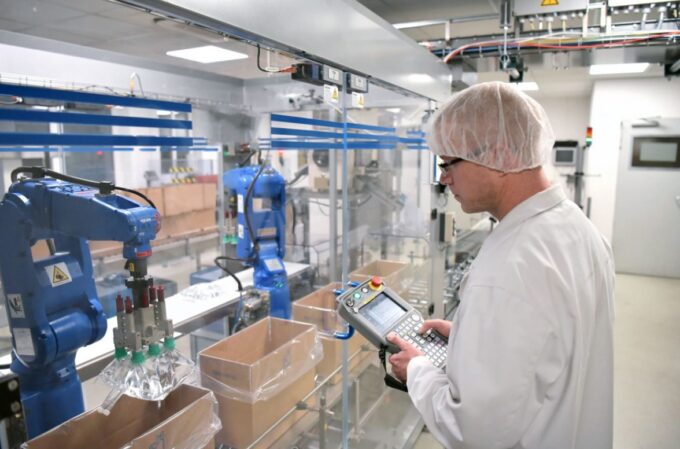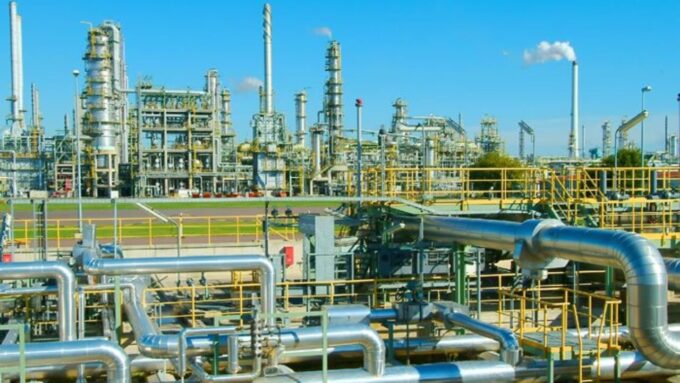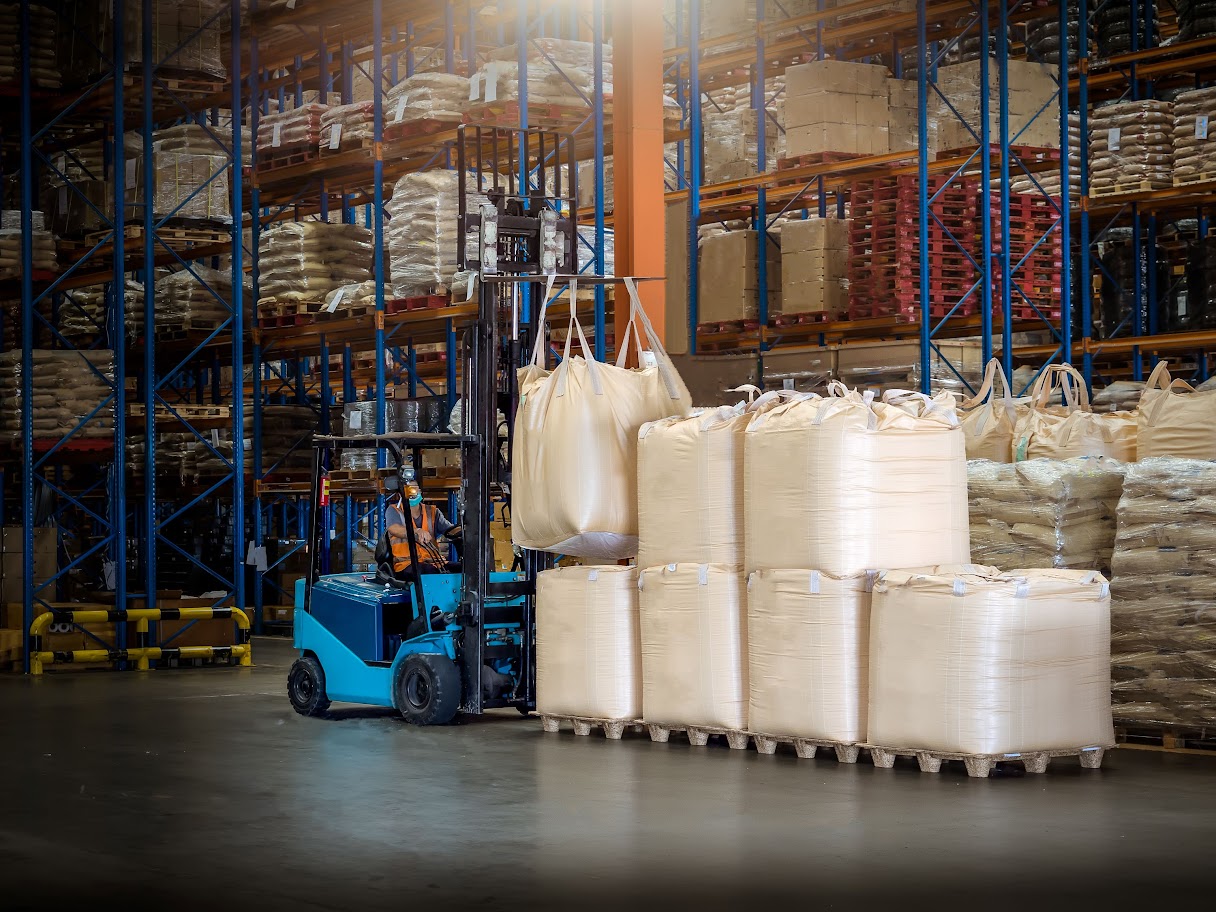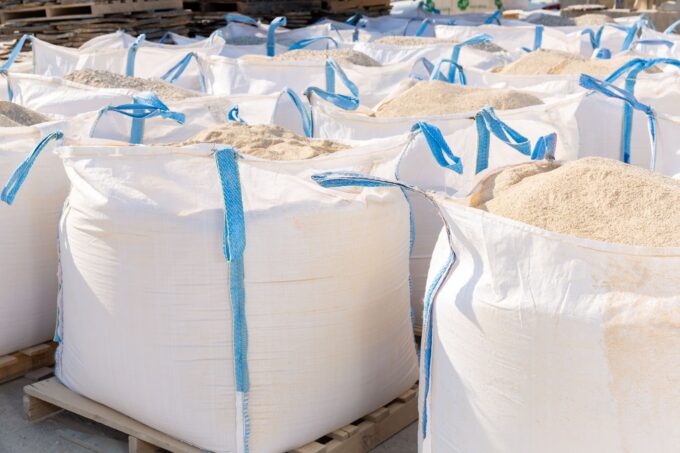In terms of transporting goods or raw materials, manufacturers and distributors must comply with safety regulations. They must ensure that the items are free of contamination and won’t cause any harm to the environment during transport.
To that end, they use bulk bags to make packing and unpacking more convenient. But more importantly, these bags protect and secure the goods.
For dangerous materials, however, it’s a slightly different story. Logistics personnel must use bulk bags certified by the United Nations (UN).
UN-graded bags are specifically designed to transport hazardous materials (hazmat), such as flammable substances, explosives, radioactive materials, and toxic chemicals. These bags have a special seal containing information about the contents and their corresponding hazards.
On top of preserving the integrity of the goods, these bags primarily protect the people and the environment from potential risks, like contamination or spillage. With these capabilities, UN bags are widely used in the following industries.
Chemical Industry

In the chemical industry, manufacturers transport chemicals in bulk. Some of these chemicals are hazardous and can be highly volatile. Substances like these should be handled with utmost care. Arsenic, lead, asbestos, mercury, and formaldehyde are some of the most common dangerous chemicals used for commercial purposes today.
When mismanaged, they can cause gastrointestinal, reproductive, neurological, and respiratory health issues, to name a few. If these materials aren’t sealed inside suitable containers during transit, they can leak out, which can cause irreversible health and environmental damage.
UN-certified bulk bags are made of polypropylene, known to be resistant to chemicals, heat, and fatigue. They’ve been subjected to rigorous drop, topple, righting, and tear tests to make sure they do well in extreme setups. By using these bags, workers will rest assured that these chemicals won’t spill or leak out while in transit.
Pyrotechnics Industry

Manufacturers from the pyrotechnics industry develop explosive materials, such as flammable powders, volatile gases, or combustible dusts. Flammable materials, in general, could explode during accidents or leak out en route to the receiving point.
Since pyrotechnic materials pose many risks, handlers must take safe-handling measures. It becomes imperative that they store them inside appropriate containers.
UN-certified spark-proof bulk bags are designed to prevent dangerous electrostatic discharge, a precursor to a fire or an explosion. Again, they also prevent leakage when these materials are inside a vehicle. These bags also prevent corrosion during long periods of storage or storage at room temperature, which can compromise the integrity of the material.
Petroleum Industry

The petroleum industry is one of the riskiest sectors in the world. Petroleum has a wide range of applications in several other industries. Being hazardous and highly volatile, petroleum products must be stored in secure containers during transport.
For example, crude oil has naturally occurring compounds (e.g., PAHs, benzene, and toluene) that become toxic when exposed to light or cause urinary or breast cancers.
To reduce the risks and hazards, companies use UN-certified bulk bags to prevent spillage or leakage. They can keep heat from escaping during storage or transport, significantly reducing environmental impact.
Pharmaceutical Industry

Pharmaceutical companies must be careful when it comes to manufacturing products. Pharmaceutical products are often sensitive, fragile, or dangerous.
Chemotherapy agents, antiviral drugs, and certain bioengineered drugs, for instance, are considered hazardous by the Centers for Disease Control and Prevention (CDC), saying these drugs can cause ‘acute and chronic health effects, such as skin rashes, infertility, miscarriage, and possibly leukemia and other cancers.’
To reduce occupational exposure, these substances must be properly packed. Because UN-certified bulk bags are chemically inert—meaning they don’t react to chemicals—they can ensure hazmat in transit will remain in good condition while reducing the risks they pose to the logistics personnel.
Construction And Mining Industries

The workers in the mining and construction industry are often prone to accidents when transporting soil, waste, and dangerous chemicals.
A lack of adequate protection from these substances often causes accidents. Highly toxic and carcinogenic materials like asbestos, chemically contaminated wastes, and solvents are commonplace in these industries.
Accidents may also happen when workers carry heavy containers that might cause injuries. So it behooves a contractor to keep their workforce safe from the hazards of these materials.
UN-certified bulk bags are extra durable and, as mentioned earlier, chemically resistant. These bags can store liquid, semisolid, and solid materials while preventing leakage, spillage, or other risks inside or outside the job site. Essentially, they can help maintain workplace safety—by reducing occupational hazards.
Agricultural Industry

Farmers are always in a hurry and need to move their crops from one place to another. They must also conserve fertilizer and store seeds to ensure that pests do not spoil the harvest. Because most crops are vulnerable to pest infestation, farmers will need bags that are durable and not easily punctured to store them in.
Farmers can benefit from using UN-certified bulk bags because they can withstand agricultural rigors. These bags have a 6:1 safety factor ratio, which means they can carry six times their regular capacity. Plus, they are resistant to bacteria, mold, and fungal growth. Farmers can be sure of their quality.
On top of that, these bags may also be used to hold agrichemicals, like pesticides, insecticides, fungicides, etc. These bags can prevent small particles from leaking and moisture from building up. For these particular purposes, coated sift-proof bags and lined bags are the most ideal.
Key Takeaway
Manufacturers of hazardous goods must comply with industry standards to ensure their products do not harm anyone or the environment.
They must be stored and packed properly to prevent spills, explosions, and leaks during transport. These hazards can cause damage not only to the handlers but also to the environment. Often, they are irreversible damages.
This is where UN-certified bulk bags are necessary. UN-certified bulk bags can carry heavy, bulky, and dangerous items safely and securely while maintaining the condition of the goods during transportation.
Many industries—such as pyrotechnics, agriculture, pharmaceutical, mining, and construction—are mandated to use these bags.









